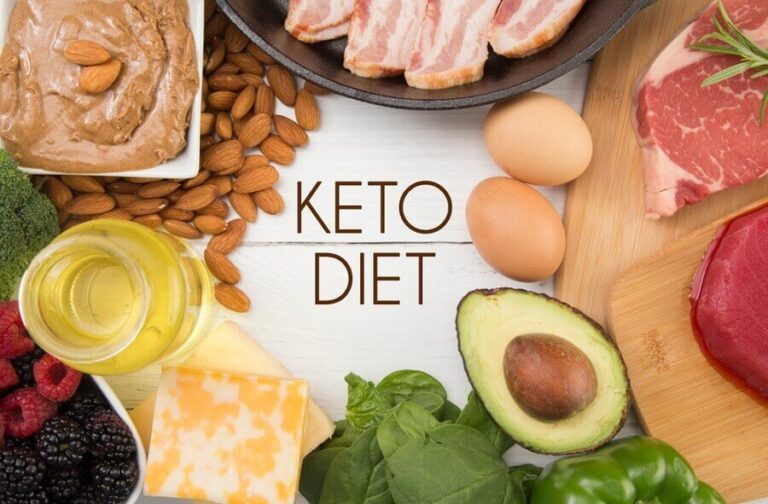Fasting is a method of eating that involves abstaining or restricting food consumption for a specific time. In recent years, fasting has become an increasingly popular method of losing weight.
Some types of fasting, such as the egg fast, involve low carbohydrate meal plans. Egg fast involves eating mostly eggs and animal fats (cheese and butter) for a short period.
This method is used as a beginner’s starter on the ketogenic diet. This is because the egg fast allows you to reach ketosis quickly.
This article explains how to do an egg fast and details a menu example with the basic rules of egg fast.
What is an egg fast or egg fast?
The egg fast or egg fast is a type of diet of the ketogenic type. That is, a type of diet where fats predominate, proteins are allowed in moderate amounts and carbohydrates are reduced to the maximum.
Egg fasting also falls into the low-carbohydrate diet category.
With the egg fast, it is possible to get into ketosis quickly. So it is used as a method to start the keto diet. In ketosis, the body can use fat for energy.
RELATED: Eggs – Protein and Calories How Many to Eat a Day?
Beginner’s Guide to Egg Fasting
The egg fast has many rules; for example, it should not be extended to a period greater than 3-5 days since it may have contraindications for health; you should fast while sleeping, and the eggs should be eaten whole with white and yolk.
The fast egg method is not recommended for people with high triglycerides or a fatty liver. Studies have recorded a possible increase in bad cholesterol and increased liver work. (2,3) Here is how to do the egg-fast step by step:
- Eat a whole egg within 30 minutes of waking up.
- All foods must have at least one egg as an ingredient.
- At least six eggs should be eaten.
- It would help if you ate a tablespoon (12 g) of extra fat; cheeses, butter and vegetable oils (canola, olive, coconut, etc.) are allowed.
- Fasting from about 3 hours before going to bed until getting up
- If possible, eat local and organic eggs.
// Recommended: Fatty liver diet – Sample menu
How does egg fasting work? – Effects on losing weight
In egg fasting, blood glucose levels drop to minimal values. When this happens, body fat can be used as an energy source.
The different types of body fat are transformed into ketone bodies. A kind of molecule that the body can use when glucose is not available. (3)
Studies that have evaluated the difference in weight loss effects of both methods have confirmed faster results. (1,2,3)
Although egg fasting is a suitable method for losing weight, the results depend on several factors, such as starting weight, height, age, and gender.
For example, a person with a high starting weight should expect to lose more fat than someone with a lower starting weight. To get an idea, the weight loss effects of egg fast are about 2-4 kilos in 3-5 days.
// Recommended: Is eating many eggs bad for fatty liver?
Egg fast menu example – egg fast
As in the keto diet, fast egg sugar and most sweet foods are prohibited. White bread, flour, pasta, sweets and most fruits do not allow you to enter ketosis.
In an egg fasting menu, only eggs and sources of vegetable or animal fats are allowed; in addition, some green vegetables are allowed to contribute to vegetable fiber. Here is an example of an egg fasting menu:
- Day 1
- BREAKFAST: Scrambled eggs (2-3 units) with Parmesan cheese and butter. Black coffee.
- MID-MORNING: 30 g of cheese
- LUNCH: Egg salad, arugula, ricotta, and olive oil.
- SNACK: Handful of nuts
- DINNER: Omelet (2-3 eggs) with mozzarella cheese and 50 grams of cherry tomatoes
- Day 2
- BREAKFAST: Egg pancake with coconut flour and coconut oil. Black coffee.
- MID-MORNING: 30 g of cheese
- LUNCH: Curried stuffed eggs with sundried tomatoes and kale.
- SNACK: Handful of nuts
- DINNER: Omelette with broccoli and chia seeds.
- Day 3
- BREAKFAST: Keto coffee and scrambled eggs.
- MID-MORNING: 30 g of cheese
- LUNCH: Quiche with eggs, spinach, and cream.
- SNACK: 2 cheese rolls.
- DINNER: 2 fried eggs with asparagus and cheese
Benefits of the egg-fast diet
The egg fast or egg fast has not yet been studied scientifically. However, similar benefits can be attributed to the traditional ketogenic diet. The benefits of egg-fast are:
- Little feeling of hunger
- Lose weight fast
- Regulate blood sugar levels
- Induce ketosis quickly
We remember that an egg fast is a method that does not last more than five days, so its long-term benefits cannot be determined.
// Recommended: Intermittent Fasting – A Beginner’s Guide
Contraindications and side effects of egg fasting
Egg fasting should be viewed as a short-term type of diet. Should the egg fast be extended for periods greater than five days, in no case? Otherwise, it may cause damage to health.
Studies (3,4,5) have confirmed that doing any ketogenic diet for periods more extended than 12 months can cause a deterioration of the nervous system.
In particular, the power of attention decreases, and the speed of memory and the processing of visual information are affected. As well as a rise in triglycerides and cholesterol in the first weeks. (6)
In addition, fruits, vegetables, and cereals are the foods with the highest amount of vitamins and minerals. When doing the egg fast or other keto methods, the lack of iron, calcium, potassium, and vitamin C is more likely.
The risk of the side effects of keto diets (such as egg-fast) increases in children and adolescents, as their bodies are more susceptible to dietary changes. (2) The main side effects of egg fasting are:
- Digestive problems
- Hypoglycemia
- Dehydration
- Bad breath
- Fatigue
- Irritability
- Lack of vitamins and minerals
- Increase in harmful cholesterol levels
- Constipation
- Less physical growth
- Gripe class
Egg fasting, as well as other types of fasting, is contraindicated for pregnant or lactating women. If you have any medical conditions before starting egg-fast or intermittent fasting, discuss them with your GP or nutritionist. Contraindications to egg fasting are:
- Pregnant or breastfeeding women
- Diabetes type 1
- Fatty liver disorder
- Triglyceride or Cholesterol Problems
ABSTRACT
Egg fasting or egg fast is a ketogenic diet type feeding method. This method is short, and its weight loss effects are immediate; it is often used as a starter to the keto diet. An example of a fast egg menu consists of eggs, vegetable oils, and animal fats. In addition, some green foods are allowed as a source of vegetable fiber and coffee.
Egg fasting can have side effects, so it should not be extended over time. The duration should not be more than 3 – 5 days. To minimize the side effects of egg fast, it is recommended to drink a more significant amount of water. Egg fast is contraindicated for people with fatty liver, pregnant, or type 1 diabetes.







